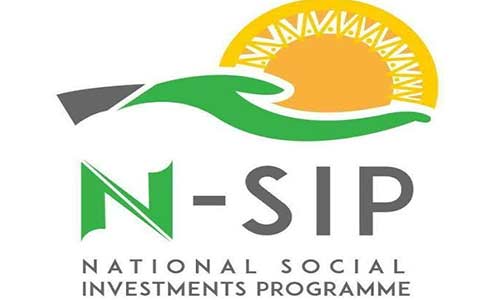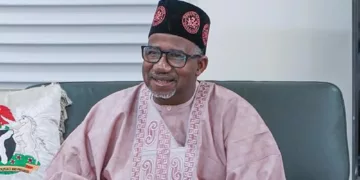Chief executive officer of the National Social Investment Programme Agency (NSIPA), Hajia Halima Shehu, has reaffirmed the agency’s commitment to transparency and accountability in executing the $800 million World Bank Conditional Cash Transfer (CCT).
Speaking during a press briefing yesterday she assured both Nigerians and the international community that stringent measures would be in place to guarantee the efficient and fair distribution of funds to the country’s most impoverished citizens.
Shehu emphasised the pivotal role of NSIPA in President Bola Ahmed Tinubu’s renewed agenda for poverty alleviation.
She said the programme was fully funded project by World Bank, adding that they are working with $800 million from the World Bank.
According to her, “About the beneficiaries and how they are sourced, there is a National Social Register, it’s a collection of state social registers; all the 36 states and the FCT are participants. So, a collection of 36 States and FCT Social Register makes up the National Social Register.
“Most people in the National Social Register are either rural poor, or urban poor. So, the office that is charged with the delivery of this cash, which is the National Cash Transfer Office mines the beneficiaries out of the social register.
“Most of the people in the National Social Register are not known to any political person. They are Nigerians that deserve to benefit from the grant and that is why no list is being collected by anybody.”
She said that “both the Rapid Response Register and the National Social Register cannot be influenced by any other person outside the key people who have structured the programme and who are supervising the programmes, which is the World Bank.”
Shehu who assured that the Conditional Cash Transfer Programme has been fully digitised, affirmed that the scheme is being implemented across the country, adding that everybody on the Social Register has a bank account and that plans are underway to allocate National Identity Number (NIN) to all the beneficiaries as part of measures to “strengthen the transparency and accountability process.”
While noting that the NSIPA Act was signed into law in May 2023 with a specific assignment, she observed that as the chief executive officer of the agency, she has been saddled with the responsibility to implement, coordinate all programmes under the agency as clearly stated by the Establishment Act.
She said, “The agency has been saddled with the responsibility to assist, empower, uplift numerous Nigerians out of poverty by assisting and empowering and restoring the livelihood of poor and vulnerable Nigerians. We are far from any kind of danger ahead of us.
“The poverty alleviation programmes under the Agency are: Government Enterprise and Empowerment Programme known as GEEP, which has components of TraderMoni, FarmerMoni, and MarketMoni, and the National Home-Grown School Feeding Programme, which is aimed at feeding Primary 1to 3 Pupils in public school.
“The Conditional Cash Transfer Programme which targets the poorest of the poor in the country. And the unconditional Cash Transfer Programme which is known as the Grant for Vulnerable Groups, it targets mostly the physically challenged and Senior Citizens, amongst others.
“There is an Alternate School Programme that target out-of-school and at risk children. The Agency’s activities are designed to harmonize, synergize, institutionalize, as well as provide coordination on the social intervention programmes in Nigeria, through partnership with both national and international Development Partners. Through harmonization, we’ll be able to fast track economic development and improve the standard of living of those at the bottom of the socio-economic pyramid in Nigeria.
“Upon resumption of office two months ago, my team and I have been working around the clock to ensure that we do not leave any stone unturned in our fight against poverty, as directed by President Bola Ahmed Tinubu.
“Under my watch, we have successfully kick-started the Conditional Cash Transfer Programme funded by World Bank with a N25,000 monthly stipend for three months and we are targeting 15 million households.





